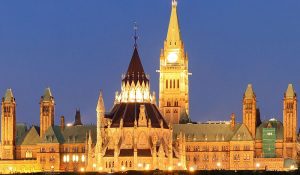In late 2023, the Federal government announced its intention to deny income tax deductions for expenses by non-compliant operators of short-term rental properties (such as Airbnb or VRBO properties rented for periods of less than 90 days). These rules would apply to individuals, corporations and trusts with non-compliant short-term rentals.These rules are proposed to come into effect on January 1, 2024.
A short-term rental would be non-compliant if, at any time, either:
- the province or municipality does not permit the short-term rental operation at the location of the residential property; or
- the short-term rental operation is not compliant with all applicable registration, licensing and permit requirements.
Many municipalities require a business license or permit for short-term rental operations. Where short-term rental activities are carried on without such a permit, the operator would be subject to these proposals and taxable on gross rental revenues with no deductions in 2024 and later years.
Residential property would include a house, apartment, condominium unit, cottage, mobile home, trailer, houseboat and any other property legally permitted to be used for residential purposes.
No expenses incurred with respect to the non-compliant short-term rental would be deductible. For example, consider a short-term rental that incurred $100,000 in expenses to generate $20,000 in profit. If non-compliant, all expenses would be denied, resulting in a profit for tax purposes of $120,000. Assuming the individual owner was in the top tax bracket (53.53% in Ontario), they would pay tax of $64,236. As the actual profit was only $20,000, the effective tax rate would be 321% ($64,236/$20,000). In absolute dollars, the individual would have to pay $53,530 in additional taxes due to the denied expenses.
Where the short-term rental was non-compliant for part of the year and compliant for another part of the year, the total expenses incurred for all short-term rental activity would be pro-rated over the period of that activity to determine the non-deductible portion.
For example, assume that a property was used for long-term rental from January 1 to June 30, then converted to short-term rental on July 1. However, the owner did not obtain a business permit as required until September 1 (62 days non-compliant). Expenses for July 1 to December 31 (the short-term rental period, 184 days) would be 62/184 non-deductible. Expenses related to the long-term rental period would not be part of the calculation of non-deductible expenses.
Transitional rule
For the 2024 taxation year, if the taxpayer is compliant with all applicable registration, licensing and permit requirements on December 31, 2024, they would be deemed compliant for the entire 2024 year and, as such, would be able to deduct all relevant expenses for 2024.
ACTION: Ensure you comply with all municipal and provincial rules by December 31, 2024, to retain all deductions applicable to your short-term rental for the year.






